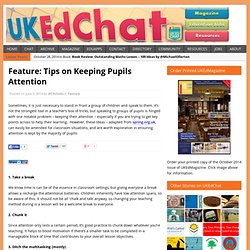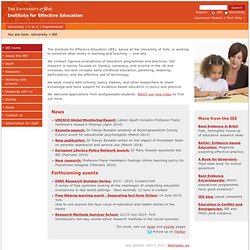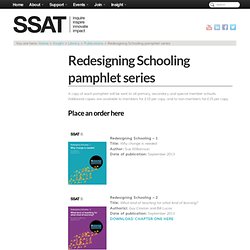

Marking review for sharing.
MFL TEACHING. Action Research. Feature: Tips on Keeping Pupils Attention. Sometimes, it is just necessary to stand in front a group of children and speak to them.

It’s not the strongest tool in a teacher’s box of tricks, but speaking to groups of pupils is hinged with one notable problem – keeping their attention – especially if you are trying to get key points across to help their learning. However, these ideas – adapted from spring.org.uk, can easily be amended for classroom situations, and are worth exploration in ensuring attention is kept by the majority of pupils: 1. Take a break We know time is can be of the essence in classroom settings, but giving everyone a break allows a recharge the attentional batteries. 2. Since attention only lasts a certain period, it’s good practice to chunk down whatever you’re teaching. 3. This is relevant for teachers and pupils. 4. For many, this can be out of your control (mainly), but the environment can help as well as hinder. 5.
Talking of the right environment: try nature – if possible, take your lessons outside. 6.
Bewerbung dotal. 5414_CfT_FINALWeb. University of York. The Coalition for Evidence-based Education (CEBE) is an alliance of individuals and organisations interested in making research evidence more central to education policy and practice.

CEBE aims to provide a platform to share ideas and information, and promote independent activity that is taking place across partner organisations. Members of the group collaborate on events and practical projects with the aim of improving the way research evidence is accessed, and used, across the sector. This includes working directly with schools through the Evidence for the Frontline (E4F) project. Visit the CEBE website for more information. The Education Media Centre The Education Media Centre (EMC) is an independent charity initiated by CEBE. To find out more about the EMC, please visit their website, www.educationmediacentre.org. In late 2011 more than 70 policy makers, journalists, educators, and researchers attended a parliamentary event to hear more about the EMC. University of York. The Institute for Effective Education (IEE), based at the University of York, is working to establish what works in learning and teaching — and why.

We conduct rigorous evaluations of education programmes and practices. Our research is mainly focused on literacy, numeracy, and science in the UK and overseas, but also includes early childhood education, parenting, widening participation, and the effective use of technology. We work closely with schools, policy makers, and other researchers to share knowledge and build support for evidence-based education in policy and practice. We welcome applications from postgraduate students. Watch our new video to find out more. This much I know about…how all of us will improve our teaching (and so make our school a truly great school)
I have been a teacher of English for 24 years, a Headteacher for 9 years and, at the age of 48, this much I know about how all of us will improve our teaching (and so make our school a truly great school).

If we worried too much about the chaos of the English state education system right now we’d weep openly. It’s laugh or cry time and it’s important that we laugh – take things seriously, but laugh whilst seizing the opportunity that we have at this point in time to do what we want, as long as it works. So, we should all work tirelessly upon improving our teaching – something over which we have complete control. Always ask yourself if what you are doing has lost its mojo. This much I know about…why all of us must improve our teaching (no matter how good our school) Hattie Visible Learning. Redesigning Schooling – pamphlet series. A copy of each pamphlet will be sent to all primary, secondary and special member schools.

Additional copies are available to members for £10 per copy, and to non-members for £15 per copy. Teachers call for return of foreign exchange trips to halt the decline of language skills. King James's School on an exchange with Bruder-Grimm School, Germany.

Linguists are calling for a revival of the school foreign exchange trip to help tackle the crisis in language learning. Language teachers, including the head of the Independent Schools' Modern Language Association, say the dramatic decline in the numbers of pupils going abroad for home stays – where they are placed with a family as part of a twinning exercise with a school in continental Europe – is fuelling the dropping rates of children studying the subjects.
The Observer revealed last month that the drop in pupils studying modern languages is likely to lead to the closure of up to 40% of university language departments within a decade, with worries growing among employers and the Foreign Office about graduate recruitment. Last month's GCSE results showed 44% of the cohort studying a modern language, an increase of 3% on 2012, with Spanish proving hugely popular.
GERMAN resources general. Outstanding. Strategy, BLP, AfL, PDC. Involving Ps in dialogue. Differentiation. Revision. Fun & Games. Articles to read. Mindset, motivation & resilience. 5 minute lessons. DaF Ideas. Talks. ICT & T&L. Working memory. Marking & Feedback.